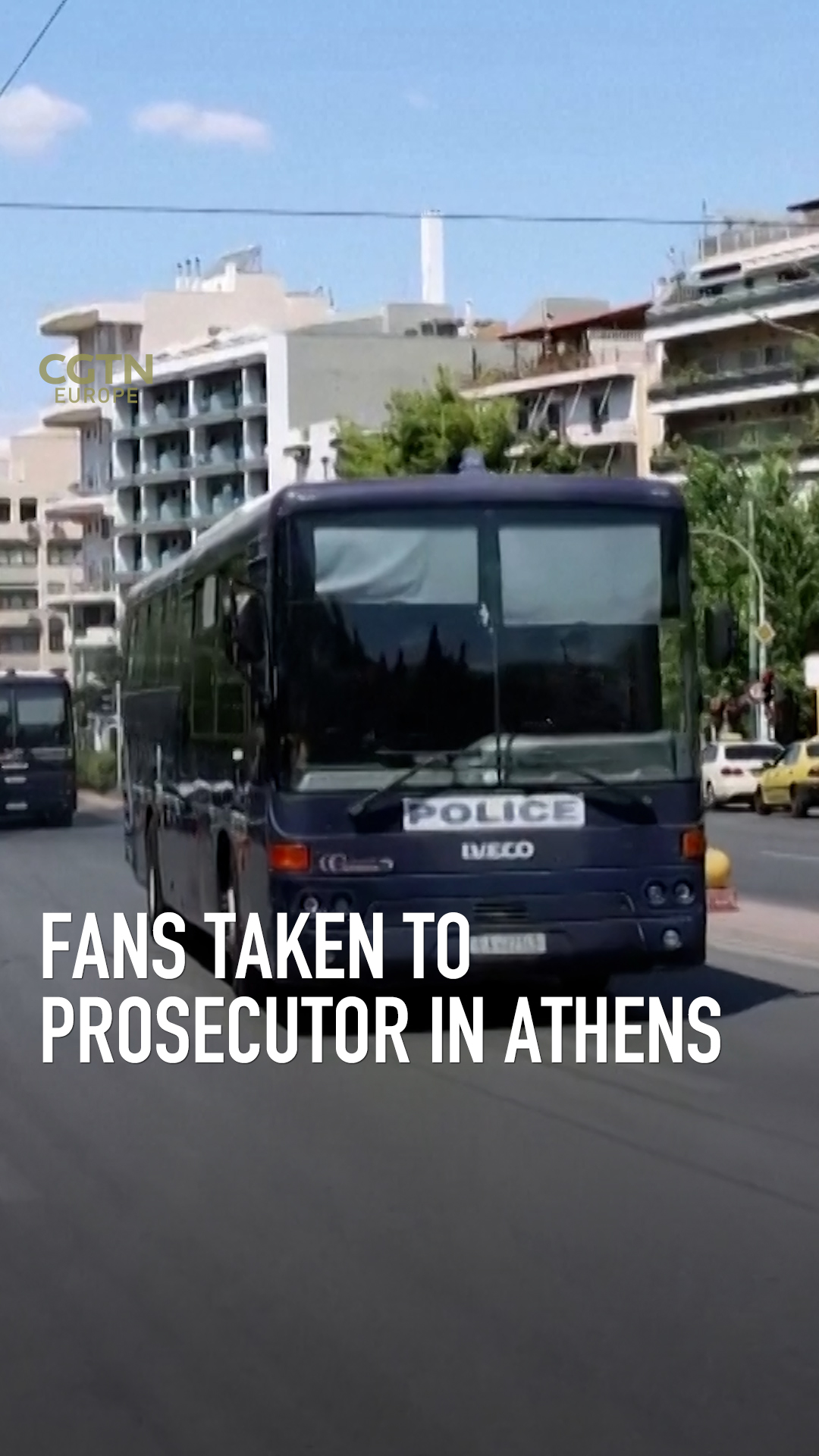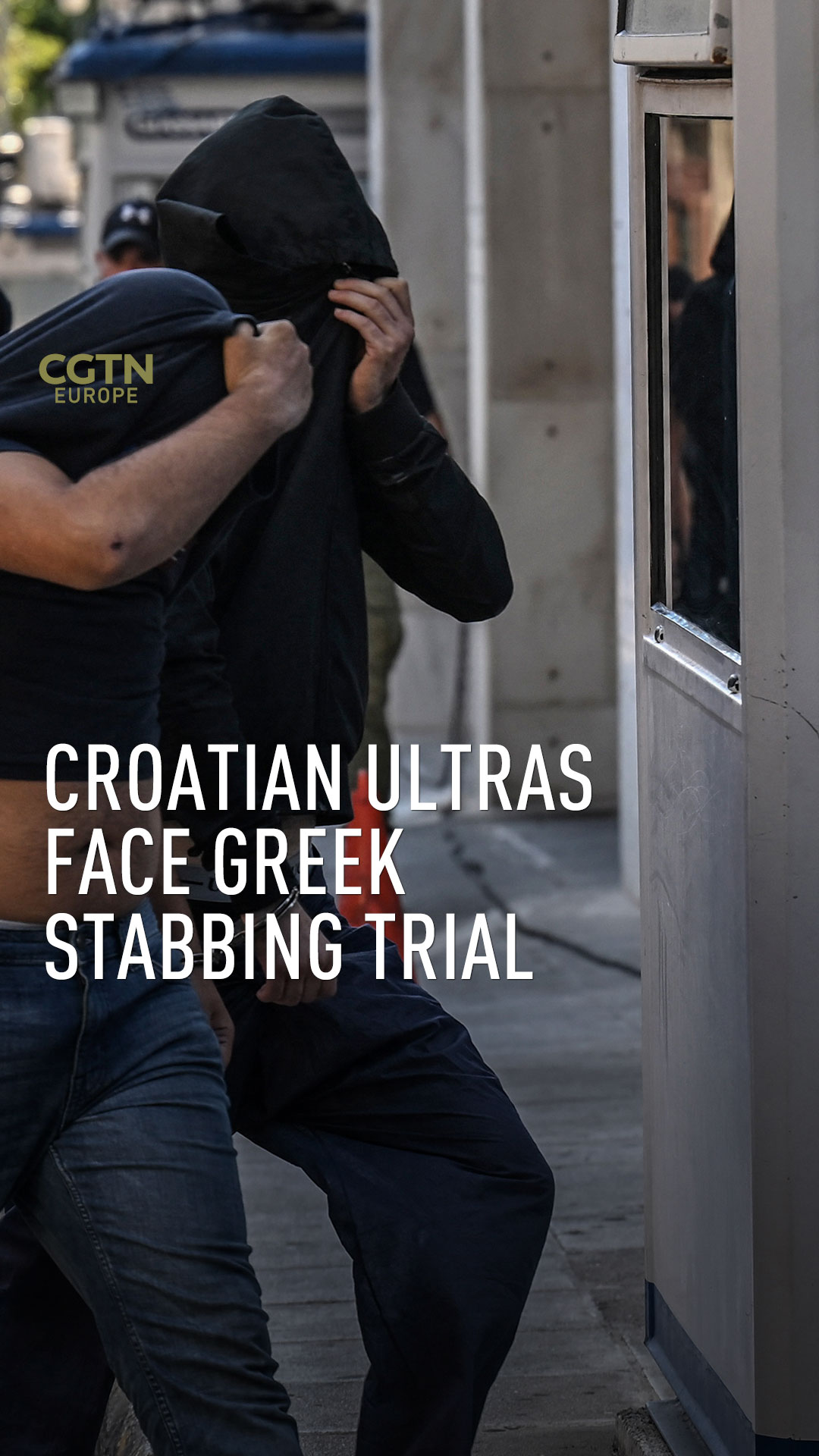00:59

Explosives, flares and stones were thrown during a terrifying night of football violence in Athens on Tuesday that led to a man being killed. The latest outbreak of fan trouble shows that Greece has some way to go in tackling its hooliganism problem.
Greek soccer has become increasingly plagued by violence on and off the pitch, with authorities repeatedly but unsuccessfully promising to clean up the game in recent years.

Flowers are left outside AEK Athens' stadium following the death of a fan. /Stelios Stefanou/Eurokinissi/Reuters
Flowers are left outside AEK Athens' stadium following the death of a fan. /Stelios Stefanou/Eurokinissi/Reuters
On Tuesday, 29-year-old AEK Athens fan Michalis Katsouris died after he was stabbed in clashes with Dinamo Zagreb supporters beside the club's stadium, ahead of a UEFA Champions League qualifying-round match.
Police said 100 to 120 Dinamo Zagreb fans showed up late on Monday near the stadium, where AEK fans had gathered. Clashes broke out more than an hour after the visiting team's training session ended with fans from both sides hurling flares, makeshift explosives and stones, according to police, with the violence continuing unabated the next day.
In addition to Katsouris's death, three Greek and five Croatian fans were injured and 104 people arrested for taking part in the violence.
Fights between football fans are frequent before or after games in Greece, despite the risk of heavy fines.
Α 19-year-old soccer fan, Alkis Kambanos, was beaten and stabbed to death outside the Aris Thessaloniki club stadium in the northern city of Thessaloniki last year.

A police officer at the scene of the clashes between fans on Monday night in Athens. /Stelios Stefanou/Eurokinissi /Reuters
A police officer at the scene of the clashes between fans on Monday night in Athens. /Stelios Stefanou/Eurokinissi /Reuters
The Greek government vowed to combat violence at sporting events afterwards, with Prime Minister Kyriakos Mitsotakis chairing a meeting to discuss the problem. Citizen protection minister Giannis Oikonomou said a bill would be submitted to parliament on reforming the sports sector but the problem has persisted.
England became famous for football hooliganism in the 1970s and 1980s, and since then it has been a problem affecting leagues around the world.
The cause of hooliganism has many different roots, from a gang culture and feeling of belonging, to politics, nationalism or religion.
In Greece much of the football violence comes from criminals claiming to be fans as a cover for their nefarious activities.
Many in Greece were shocked at the stabbing to death of PAOK fan Kambanos in Thessaloniki. The attackers allegedly asked him what team he and a friend supported before he was knifed.
01:00

READ MORE
UK triathletes fall ill after river swim
EU'S Borrell to visit Beijing
Zelenskyy hails West's air defense systems
People laid flowers and left candles, handwritten notes and soccer jerseys bearing Kambanos's name at the crime scene. One of them read "Never again."
It resulted in 12 people being jailed and a commitment from the authorities to tackle the hooliganism problem. "Combating violence among youths and football fans is our obligation to the Greek society and the younger generation," Oikonomou said. "We expect everyone to contribute to eliminate sports violence."
The government increased the maximum sentence for those convicted of football violence from six months to five years last year but this has not solved the problem.
Tuesday's match between AEK and Dinamo was postponed, with UEFA saying that the right conditions were not met.
"Violence has no place in our sport and we expect that those responsible for this terrible act be arrested and consigned to justice in the shortest delay," it said.
Criticism has been laid at the door of Greek police, following claims it ignored warnings about a convoy of Croatian football hooligans heading for Athens.
Oikonomou said on Tuesday the state must intensify efforts to curb sports violence and that it was "unacceptable" that police had failed to prevent the incident.
Seven police officers will be dismissed from their posts as a result, he said.

Subscribe to Storyboard: A weekly newsletter bringing you the best of CGTN every Friday
Source(s): Reuters
,AFP